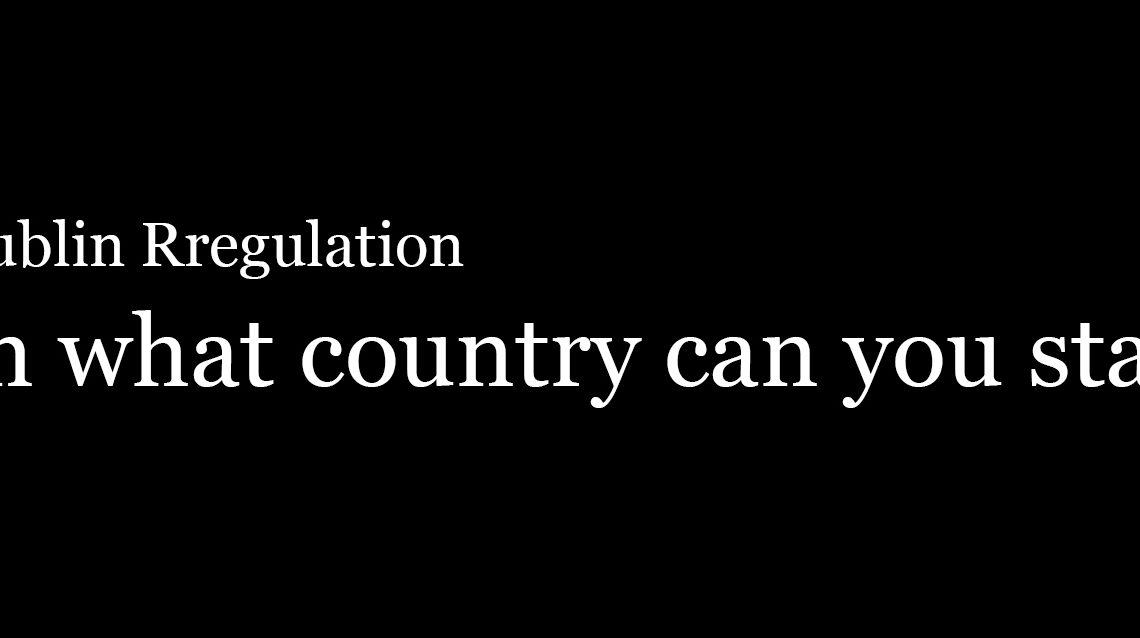Dublin Regulation – In what country can you stay?

The exceptions of the Dublin Regulation
The Dublin Regulation is a law that could easily be read and understood. This is because the criteria set in the Regulation follows a normal order, from article 7 to article 17. However, it is important to understand that the criteria are determined by the circumstances on the day the application for asylum was made in a member state. Meaning that, if you get married after your asylum application was made – the marriage will not be considered as have given you a family relation according to the Dublin Regulation.
Thus, the first exception, or criteria to determine the responsible member state, is when an underage child applies for asylum. If the underage child has a parent or sibling in another EU-country, that country is responsible for the child’s case. If the child has no parents or siblings, but other relatives that through a court decision have overtaken the responsibility of the child as custodian, the child should be transferred to the country where this relative resides. In the ultimate case, if there is nobody at all in the EU when the child applies for asylum, the responsible state is where the application for asylum is made.
For Family members the responsible state should be the country where the applicant has a spouse or a child, who has been granted asylum, that is the responsible state. This requires that the family member who is legally residing in the other EU state writes a letter of consent stating that the legally residing person wants to be reunited with their family member. This article does not require that you and your partner were family members before your applications.
The other regulation for family members is, if the family member inside the EU has applied for asylum but have not been given a decision in the other EU state. In that case the responsible state is the country where the family member, already in the EU, is having his or her case handled. This also requires a consent. The difference between this article and the previous one is that when it comes to open asylum applications, the family relation must be existing already from the day the first family member applied for asylum. Meaning that if you marry after your spouse applied for asylum in the EU, you will not be considered as family members.
If you already have a residence permit that has not expired, the country that gave you the residence permit is responsible for your asylum case. In the case of fingerprints but no formal application, the responsibility of the country that first took the fingerprints is responsible for the application of asylum up until 12 months from the date the fingerprints were taken. However if the applicant can prove that he or she has stayed in a member state for more than 5 months, that country will be responsible for the application.
In the case of relatives the rules are much more difficult. In this regard it is important to remember that according to the laws of the European countries, a family member is only a partner and an underage child. Meaning that adult children, siblings and parents are not considered family, as they are above the age of 18. The only reason for a relative to be transferred to another EU state to have their application handled by that state, is if the relative are dependent of the support of the legally residing relative. This demands that the dependency already existed in the country of origin and that the relative inside the union has the capacity to provide for the asylum applying relative.
Lastly, if the circumstances are severe enough, the Dublin Regulation allows for a so called discretionary decision. This means that circumstances in some individual cases are so severe that the country that gets the request, is willing, mostly because of humanitarian reasons, to accept to try an asylum case. An example is a terminally ill sibling to people who are legally residing in another member state, that wishes to decease in the presence of his siblings who also are the only alive relatives. However, this needs to be proven with substantial documentation.
In general, the Dublin Regulation is a very tough law that prohibits people from applying from asylum where they want. Also, in many ways, this Regulation is neither contrary to- or in accordance with international asylum law. The EU-states have a responsibility to provide refugees and asylum applicants a haven. However, according to all the EU, all member states are safe, secure and democratic countries that can provide asylum if needed.
If you have gotten into trouble because of the Dublin regulations, you are welcome to contact us at H I Law Firm for a consultation. If your case has been denied you are also welcome to send your decision from the Migration Agency to us and we can assist you by reading it. Our lawyers have experience with cases according to the Dublin Regulation and we have lawyers who previously have worked at the Migration Agency’s Dublin unit

